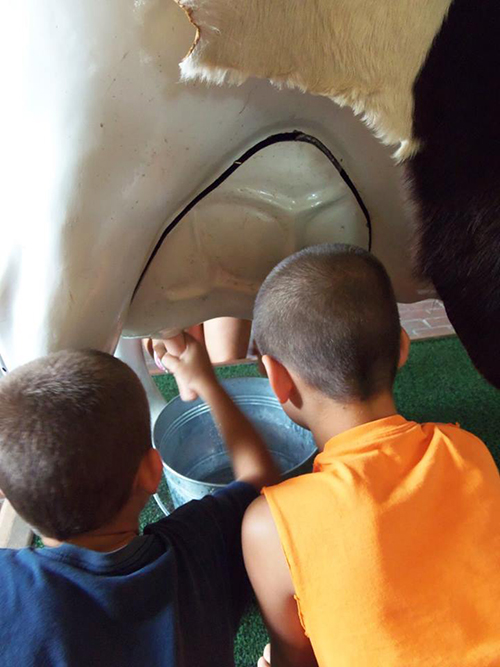By Carie Moore
June is Dairy Month. And July is National Ice Cream Month. You know what that means: I scream, you scream, we all scream for ice cream!!!
Personally, I'm not a big ice cream fan but I will have my favorites from time to time. Ice cream, frozen yogurt, malts, and sundaes are all GREAT ways to support our dairy farmers. Those cold and tasty treats you enjoy took a lot of work to make and involve a lot of people.
There are milkers, cow feeders, herd health specialists, truck drivers, plant processors, dairy supply companies that make the dairy products, grocery store employees, and of course you, the consumer! But let's not forget the cows!
After cows are bred, they are "dried off" while they are pregnant, for about 10 months. At that point, they are not part of the daily milking. As they get within a few weeks of calving, they are then moved into another group so they be monitored daily. It's important for new-born calves to get the colostrum produced by the cow as soon as possible after birth.

Pictured above: Carie's sons try their hand at milking a fake cow.
After calving, the cow is "freshened." During this time, she is monitored closely and given any medication, vitamin K, or electrolytes she may need. Her diet is also more enhanced and she can produce quite a bit of milk during this time when cared for properly. If she is on any medications she is put into a special "treated" group, given a fancy colored leg band and milked last. Milking medicated cows is done after the pipes have been removed or diverted from the bulk tank containing the rest of the herd's milk.
This is all done to ensure that treated milk is not mixed in with milk going to the milk plant. To be double sure, the milkers and even the truck drivers take samples of the bulk tank milk before it leaves the farm.
After the required withdrawal time has passed, the cow can be reintroduced into the regular milking herd. If the cows has not been treated, it is usually done within the first month after calving, however, size, space, and other factors on each farm determine that. Bull calves (male) are sold and heifer calves (female) are either sold or kept as herd replacements.
Milk has been getting cheaper and that may be great for those of us on a budget, but not so great for those who care for the cows and depend on them for their income.
So next time you're eating that cone as fast as you can before it melts, be sure to remember all the work put into it for you!
